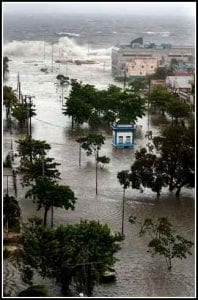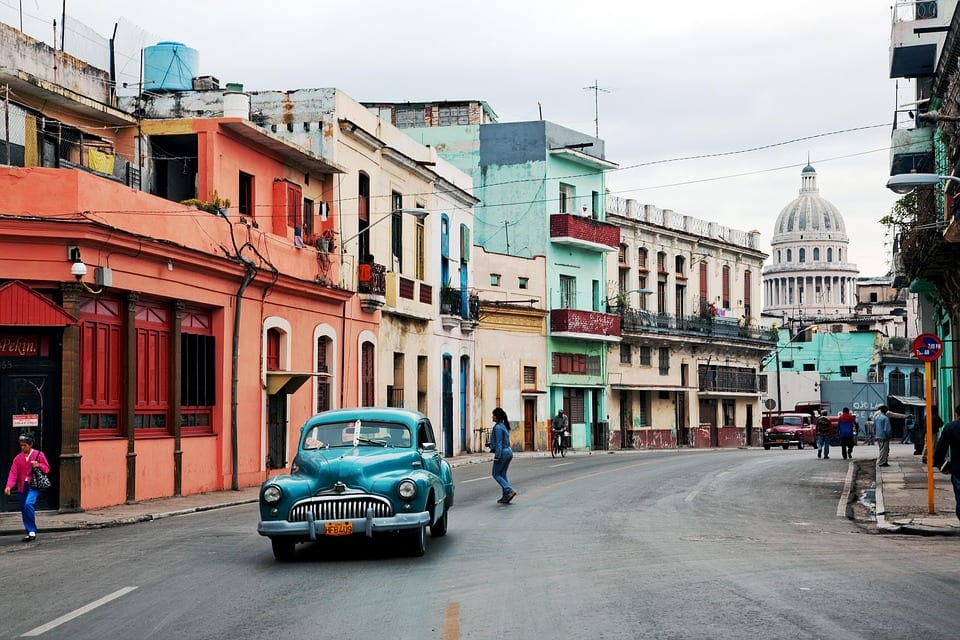As the U.S. rolls back its commitments at home and abroad, we could learn a lot from Cuba, a resilient nation familiar with hardship.
Sure, we live in a time of xenophobia and resurgent white nationalism. We’re facing an uncertain and chaotic future, largely of our own making. However, now that we’re starting to dial back both our role as the indispensable nation as well as any obligations we might have felt towards assisting struggling Americans, it might be worth taking another look at what other countries do well for their citizens and we do not. Eventually, the “America First!” slogan will ring a little hollow when we see countries like Cuba providing benefits that our country either can’t or won’t.
Consider the Cuban lung cancer vaccine. Clinical trials show that lung cancer patients who receive the vaccine can live two to five months longer than those who don’t. Americans who managed to travel to Cuba for clandestine medical care, which is prohibited by federal law, paid $860 per dose, with several doses needed during the course of treatment. Cuban citizens are treated for free, which is to say that their society believes so strongly that this treatment should be available to all that they fund it as a public good. Try doing that in America.
Universal healthcare? Cuba’s got it. Despite widespread poverty and less than a tenth of the healthcare spending per citizen as in the United States, life expectancy in Cuba is almost the same as it is here, with lower infant mortality, too. Because they can’t afford to waste a single peso, Cuban healthcare is remarkably efficient at keeping people healthy. Their neighborhood-based system requires many more doctors, making medical education a national priority. Cuba doesn’t only educate their own doctors (without debt, of course), they also extend that free education to American medical students who promise to practice in underserved, impoverished areas in the United States.

Hurricane preparedness? Cuba beats us hands down. They’ve survived their last 17 hurricanes with a total of 35 fatalities. Why are they so good? Because they seriously plan. Every Cuban has a designated shelter, and every year the entire country takes part in a two-day emergency drill so they all know what to do when the next storm comes. Communities take care of their most vulnerable people, making sure elders, children, pregnant women, and those with disabilities make it to safety. Municipal bakeries prepare food in advance. And to encourage people to evacuate safely, the Cuban government guarantees the replacement of any personal property lost or destroyed in a storm. In the United States, you’re generally on your own. Just ask Puerto Rico.
Clearly, Cuba isn’t perfect, but neither are its many critics. The Cuban government keeps a cut of the wages Cuban-born doctors earn overseas, prompting President Trump to question whether those doctors are victims of human trafficking, but maybe he can’t admit that Cuba runs its government more like a business than he does. While Trump is right to join human rights groups in condemning Cuba’s arrest of a dissident journalist, he should consider how that looks when he calls American journalists “the enemy of the people,” suggesting that some should go to jail.
With fuel shipments from Venezuela blocked, the Cuban people will also have to learn soon how to deal with acute shortages and rolling blackouts. However, this isn’t the first time that sanctions and hardship have visited their nation, and each time, they have prevailed and gotten stronger. The collapse of the Soviet Union (and the loss of half their fuel and 80% of food imports) meant worse times for Cuba in the early 1990s. They rolled up their sleeves and switched from highly mechanized, modern agriculture to older, animal-powered, organic, decentralized methods of growing food. The average Cuban lost 12 pounds, but deaths from cardiovascular disease and adult-onset diabetes dropped dramatically.
Who is responsible for making Cuba into what Trump would surely deem a “shithole country?” The current fuel shortage is due to U.S. sanctions on Venezuela, but Cuba has been subject to an American embargo for years. Those are punishment, of course, for the Cuban nationalization of American-owned property in 1960. Apparently Cuba decided that taking care of its citizens was more important than sending profits and resources back to American firms, or, as it might be put in today’s terminology, “Cuba First!” With the United States receding, that frees other countries, like China, to step in with assistance. The world is about to get more interesting, isn’t it?
The United States could stand to learn a lot from Cuba about how to take care of its citizens on a shoestring budget, using what it can cobble together. This is a skill that could serve us well in a future marked by resource depletion and the intensifying climate crisis. But first, we’ll have to admit that we have anything to learn at all. That might not be clear to the élites, but all Joe Sixpack should need to do is look around with open eyes. When hospitals are leaving rural areas in droves, when we can’t afford to rebuild after increasingly destructive storms, when college is impossibly expensive, when we die from a lack of medical care, will it matter that Americans have multiple brands of condiments to choose from? One hopes not.
Related: Physician Shortage is About Priorities


Join the conversation!